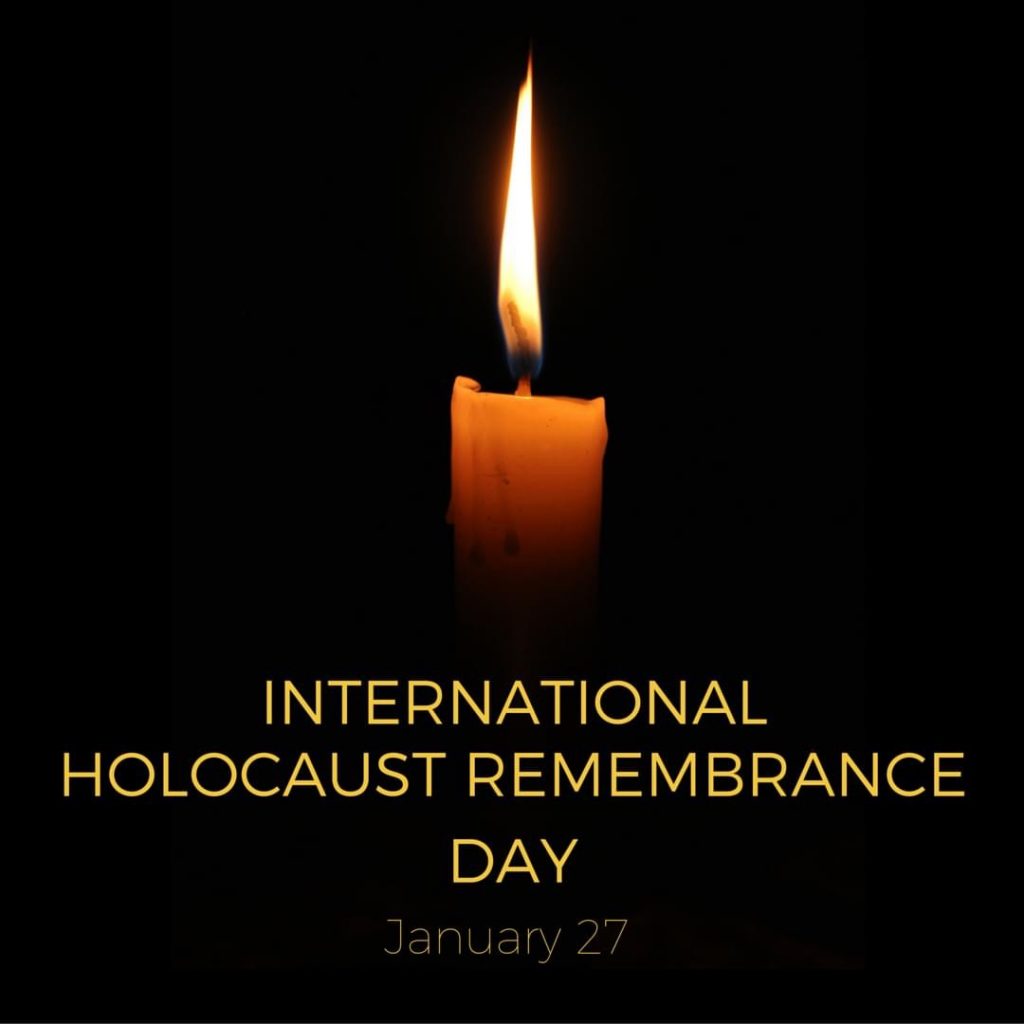What To Remember on Holocaust Remembrance Day
Adam Seipp, a professor in the Department of History, shares what we should remember on the 77th anniversary of the liberation of Auschwitz.

By Tiarra Drisker ‘25
Seventy-seven years after the liberation of the Auschwitz concentration camp, there are still lessons to be learned from the atrocities of the Holocaust, the systematic genocide that killed an estimated 5.7 million European Jews by the Nazi German regime and its collaborators. The Nazis also targeted and persecuted Roma and Sinti, Slavic, Black, physically and mentally disabled, and homosexual people.
Jan. 27, 1945 marked the liberation of Auschwitz. Now, it is our responsibility to remember the atrocities of the Holocaust and learn from its gruesome history.
“First, we remember the day,” Adam Seipp, professor in the Department of History and associate dean of graduate and professional school, said. “In this terrible conflict of the second world war, we are particularly commemorating the millions of Jewish men, women, and children who were murdered by Nazi Germany and its allies. Second, we remember the crime. Holocaust Remembrance Day should make us think every year that in the middle of the twentieth century, within the lifetime of people who are alive today, a country in the heart of Europe committed an act of remarkable perversion and violence and attempted to destroy Europe’s Jewish population.”
While remembering the Holocaust for the horrific event it was, we also need to remember important lessons learned from its beginnings, Seipp added.
“Remembering and commemorating both the crimes and the victims of the Holocaust should remind us of the cost of intolerance,” Seipp explained. “It should remind us of what happens when a state mobilizes a society against part of the population, turns against its civilians, and systematically deprives people of their rights. Holocaust Remembrance Day should remind us of the possible consequences. It should remind us of the value of individual human rights and individual human dignity.”
Lessons from the Holocaust help us make better choices in the present or future. For example, the Rohingya in Myanmar and various ethnic groups in Sudan are currently under the conditions of a genocide. These groups face persecution and violence from their governments, but their situation is not highly publicized or advocated against.
“As contemporary observers, as people who know about the Holocaust, this gives us a special mission to identify places in which people are being deprived of their rights and saying something,” Seipp shared. “The Holocaust demands that we pay attention when these sorts of things happen.”
The Holocaust also reminds us of how fragile democracy is. Adolf Hitler came to power within German constitutional means even though he was not voted as Chancellor by the majority. Hitler also enacted his dictatorship by means of the German constitution.
“Democracies don’t defend themselves,” Seipp said. “Democracies have to be defended actively. People who believe in democracy need to stand up and defend democracy. That is what did not happen in the 1930s. German democracy had a lot of passionate enemies and not many passionate defenders. One of the lessons that we have to take away from this is that democracy is worth protecting against those who want to destroy it.”
Despite the significance and enormity of fatalities, in current times, the Holocaust is often talked about and used in inappropriate contexts. Just recently, a news personality at a top rated American news station compared Anthony Fauci, an infectious disease expert, to Josef Mengele, the doctor who performed sadistic medical experiments at Auschwitz.
“The Holocaust has become part of our language in ways that are really unhelpful,” Seipp said. “On Holocaust Remembrance Day, we should pause and think about the consequences when we use these comparisons or throw around these comparisons to score political points against people we disagree with.”
